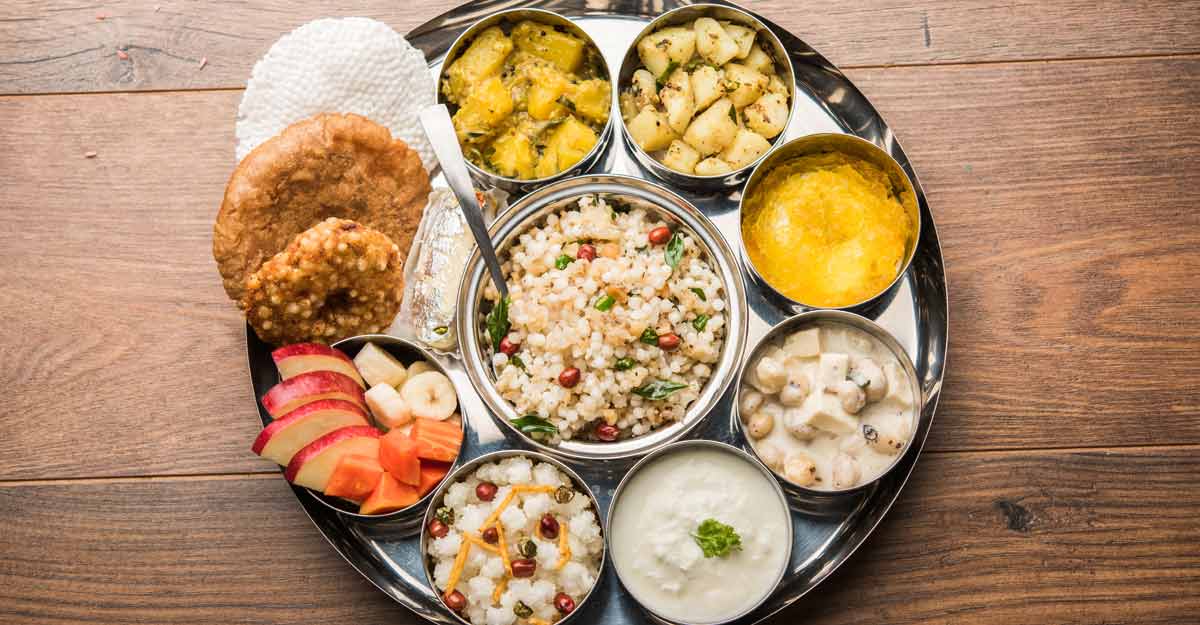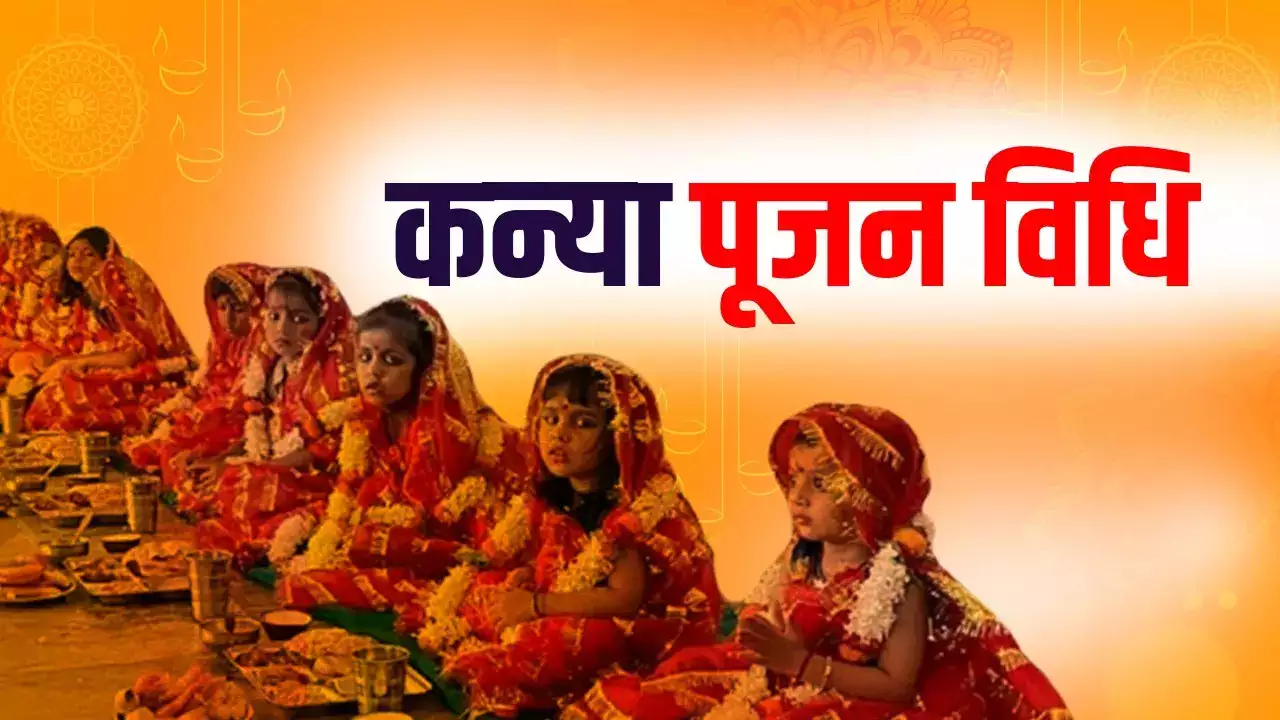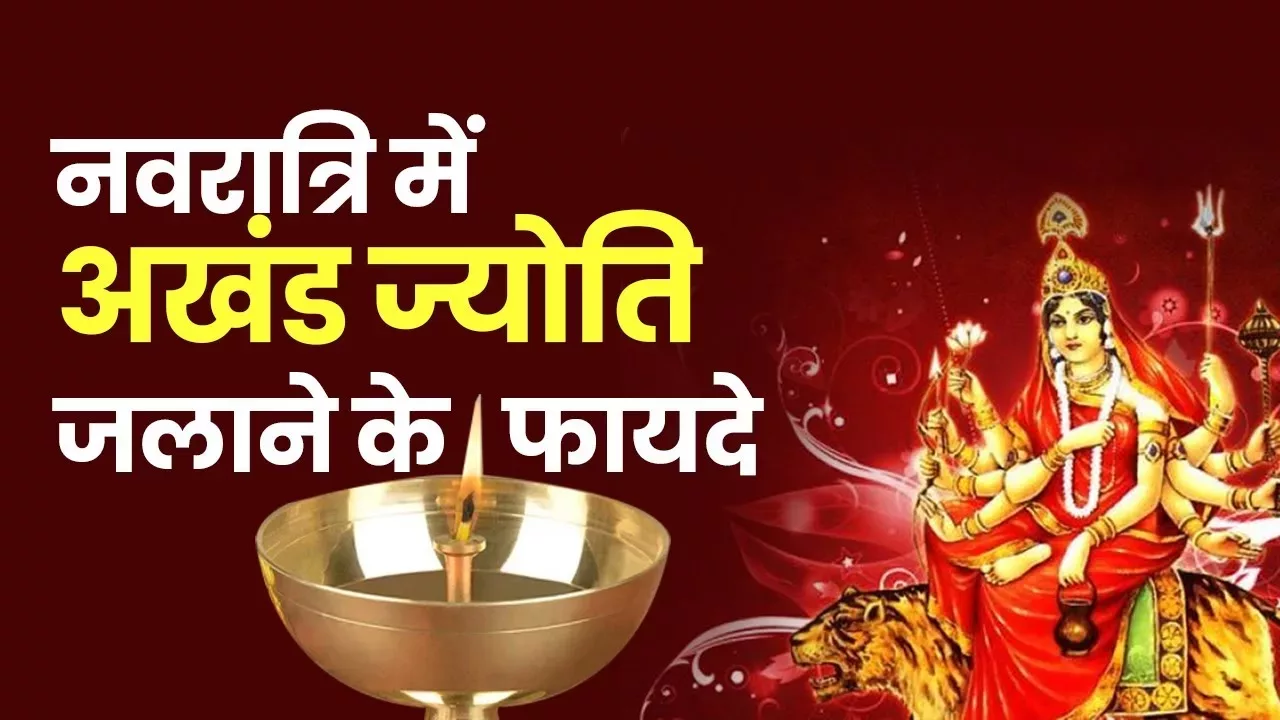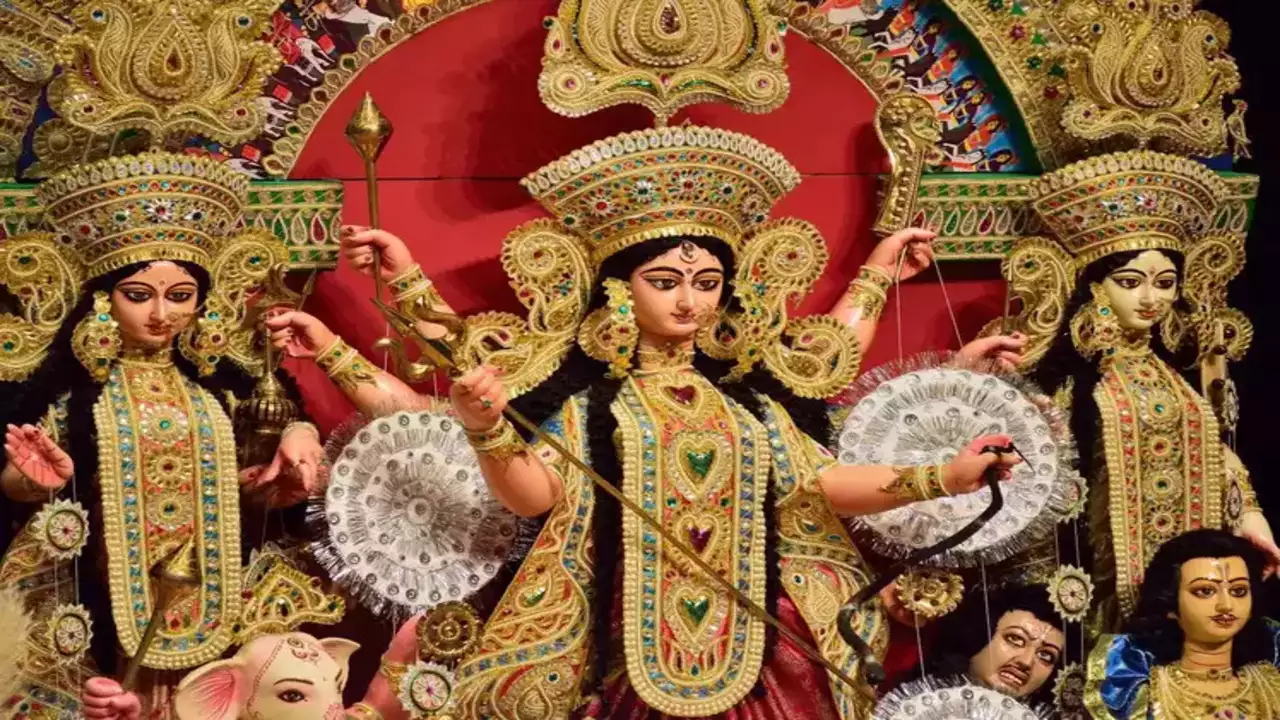Navratri Fast Guidelines:Chaitra Navratri 2024

Hello Friends!
The holy festival of Navratri is approaching. Many devotees keep a fast during this period to seek the blessings of Goddess Durga. There are many questions and doubts regarding food during the fast. Today we will tell you important things related to food during Navratri fast, so that your fast is easy and fruitful.
How many times should one eat during fasting?
During the fast, you can eat once or twice as per your convenience. If you eat once, then after morning bath and puja, you can consume fruits, milk, curd, sago khichdi, buckwheat puri, vegetables etc. If you eat twice, you can have light breakfast in the morning and fruit in the evening.
What can you eat during fasting?
During the fast one should consume satvik food, which purifies the body and mind. Here is a list of some foods that you can eat during the fast:
Fruit:
- All seasonal fruits like apple, banana, grapes, orange, pomegranate, melon, watermelon, papaya, etc.
- Dry fruits like raisins, dates, figs, almonds, walnuts, pistachios, etc.
Milk and Dairy Products:
- Milk
- Curd
- Cheese
- buttermilk
- butter
- Lost
Grains and Flours:
- Sago
- buckwheat flour
- water chestnut flour
- Rajgira flour
- fasting rice (sama rice)
- Sabudana fasting rice for Panipuri
Vegetables:
- Potato
- Tomato
- Sweet potato
- Arabic
- Bottle gourd
- Cucumber
- Pumpkin
- spinach
- Fenugreek
- Coriander
- peppermint
- Etcetera.
Spices:
- rock salt
- Cumin
- cumin powder
- green cardamom
- freshly ground black pepper
- cinnamon
- Celery
- clove
- black pepper
Other:
- Makhane
- Fasting Tea (Without Milk)
- Fasting sweets (made from jaggery)
- rock salt
It is important to note that onion, garlic, meat, fish, eggs, tea, coffee, alcohol, tobacco etc. should not be consumed during the fast.
Here are some examples of delicious vrat recipes:
- Sabudana Khichdi
- buckwheat puri-sabzi
- water chestnut whole vegetable
- Rajgira Roti-Vegetable
- fasting khichdi
- fasting pulses
- fasting vegetable
- fasting sweets
You can make these dishes as per your choice and convenience.
What should not be eaten during fasting?
During the fast one should consume satvik food, which purifies the body and mind. At the same time, consumption of some food items is considered prohibited during the fast, because they cause disorders in the mind and reduce the results of the fast.
Here is a list of some foods that you should not eat while fasting:
Cereal:
- Wheat
- Rice
- Lentils
- Gram
- Maize
- Millet
- barley
- Etcetera.
Non-Vegetarian Food:
- Meat
- fish
- eggs
- Chicken
- Mutton
- Etcetera.
Spices:
- Onion
- Garlic
- Ginger
- Turmeric
- red chilli
- Garam Masala
- Etcetera.
Other:
- Tea
- coffee
- Liquor
- Tobacco
- Gutkha
- paan
- Etcetera.
Apart from these food items, one should also not consume tamasic food during the fast. Tamasic food is heavy, dull and produces laziness.
Here are some examples of tamasic foods:
- stale food
- fried food
- spicy food
- too sweet food
- excessively salty foods
- food with excessive oil or ghee
- Etcetera.
It is also important to follow some eating rules during fasting:
- Food should always be prepared in a neat and clean place.
- Before taking food, one should wash hands and feet and take bath.
- The mind should be calm and concentrated while taking food.
- Food should be eaten slowly and chewed thoroughly.
- After the meal, thanks and gratitude should be expressed.
By following these rules one gets the fruits of fasting and gets peace of mind.
Why are onion and garlic not eaten?
Onion and garlic are considered tamasic food. Consuming these causes mental disorders. During Navratri fasting, focus is on purification of mind and spiritual progress. Therefore, onion and garlic are not consumed during the fast.
Hope this information will be useful for your fast.
Best wishes!



0 टिप्पणियाँ